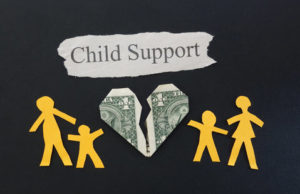Children Over the Age of Eighteen and Child Support in Florida
In Florida, child support obligations typically last until a child’s eighteenth birthday. As the Florida Supreme Court Case of Perla v. Perla made very clear, once a child turns eighteen, child support comes to an end. However, since that case was initially decided in 1952, the law has been refined. Today, child support still generally ends on a child’s eighteenth birthday, but only in ‘ordinary’ cases. In a limited number of extraordinary cases, Florida courts have the authority to extend child support for an additional period of time. If you are involved in a child support dispute involving an adult child, you should contact an experienced Orlando child support lawyer as soon as possible.
What is an Extraordinary Circumstance?
For the purposes of child support, Florida courts will assess extraordinary circumstances by referring to Section 743.07 of the Florida Statutes. Under this section of law, there are two distinct types of extraordinary circumstances:
- A child has reached the age of eighteen, but still lives at home and is scheduled to graduate high school before his or her nineteenth birthday; or
- A child has reached the age of eighteen but is still dependent on one parent due to mental or physical incapacity.
Certainly, the first type of case is relatively straightforward. Many Florida teenagers reach the age of eighteen during their senior year of high school. Under the law, they are still entitled to receive child support until they graduate or turn nineteen, whichever comes first. However, the second type of case is far more complex. Many disputes arise of what exactly constitutes a qualifying mental or physical incapacity.
Assessing Mental or Physical Incapacity
As was set forth in the case of Kern v. Kern, to qualify for extended child support an adult child’s mental or physical incapacity must be ‘severe’. In the Kern case, a child with a moderate psychological disorder fell short of this standard. Though, the standard of ‘severe’ is not always so clear. In another case, an adult child who was attending college and had moderate learning disabilities was deemed eligible for extended child support because it was determined that his learning disabilities had a severe impact on his ability to support himself. The court granted child support until he graduated college. Cases where an adult child is attending college, but is still fully dependent on one parent, are difficult. Ultimately, if you find yourself involved on either side of a child support dispute involving an adult child, an experienced attorney should comprehensively review the specific facts of your case.
Contact Our Orlando Office Today
At the Law Offices of Steve W. Marsee, P.A. our compassionate legal team has experience handling a wide variety of family law issues. If you are involved in a dispute related to child support or child custody in Florida, let us use our skills and experience to protect your legal rights and financial interests. Please call us today at 407-521-7171 to learn more about what we can do for you.

